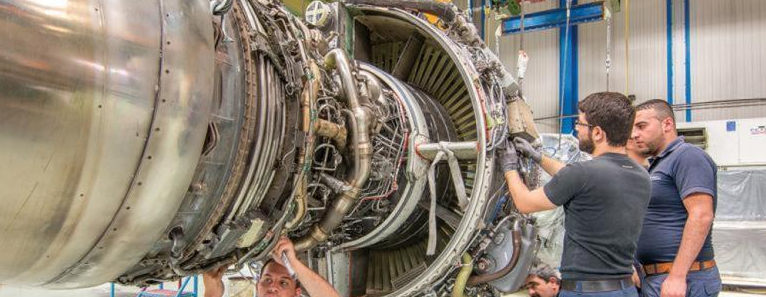Asia-Pacific, North America, Europe have biggest needs, but African growth will be rapid.
The 2019 Boeing Pilot & Technician Outlook predicts that 769,000 new maintenance technicians will be needed to maintain the world fleet over the next 20 years. The forecast includes the needs of commercial aviation, business aviation and civil helicopters.
Demand is driven by a mix of fleet growth, retirements and attrition. As several hundred thousand technicians reach retirement age over the next decade, educational outreach and career pathway programs will be essential to recruiting the next generation of mechanics, the forecasters say.
The pattern of new mechanic needs varies by region, according to each region’s current traffic and the economic growth expected in the future.
North America, whose economy is forecast to grow at 1.9% annually, will need 193,000 new mechanics. Latin America will need 52,000 to support 2.9% annual growth, Boeing forecasters estimate.
Asia-Pacific, growing 3.9% a year, will need 266,000 new mechanics. Europe, growing at a slower 1.6% rate will need 137,000.
The Middle East must recruit 69,000 new mechanics to support 3.2% annual growth. Russia and Central Asia will need 25,000 for 2.0% growth. And Africa will need even more, 27,000 for its predicted 3.4% annual economic growth.
To meet these needs, Boeing argues aviation must adopt innovative training to optimize learning and knowledge retention. Immersive technologies, adaptive learning, schedule flexibility and new teaching methods will be needed. Instructors will also need cross-cultural, cross-generational and multilingual skills to engage tomorrow’s workforce.
As new-generation airplanes become more prominent, advances in airplane technology will drive demand for new skills, such as digital troubleshooting and composite repair. Mechanics will need training for both new and legacy aircraft.
Mobile and distance learning will supplement traditional classroom instruction and allow students to continue studies outside classes. New technologies, such as augmented and mixed reality, are also being tested, Boeing notes. And competency-based maintenance training will evolve to focus on individual needs and knowledge gaps.

